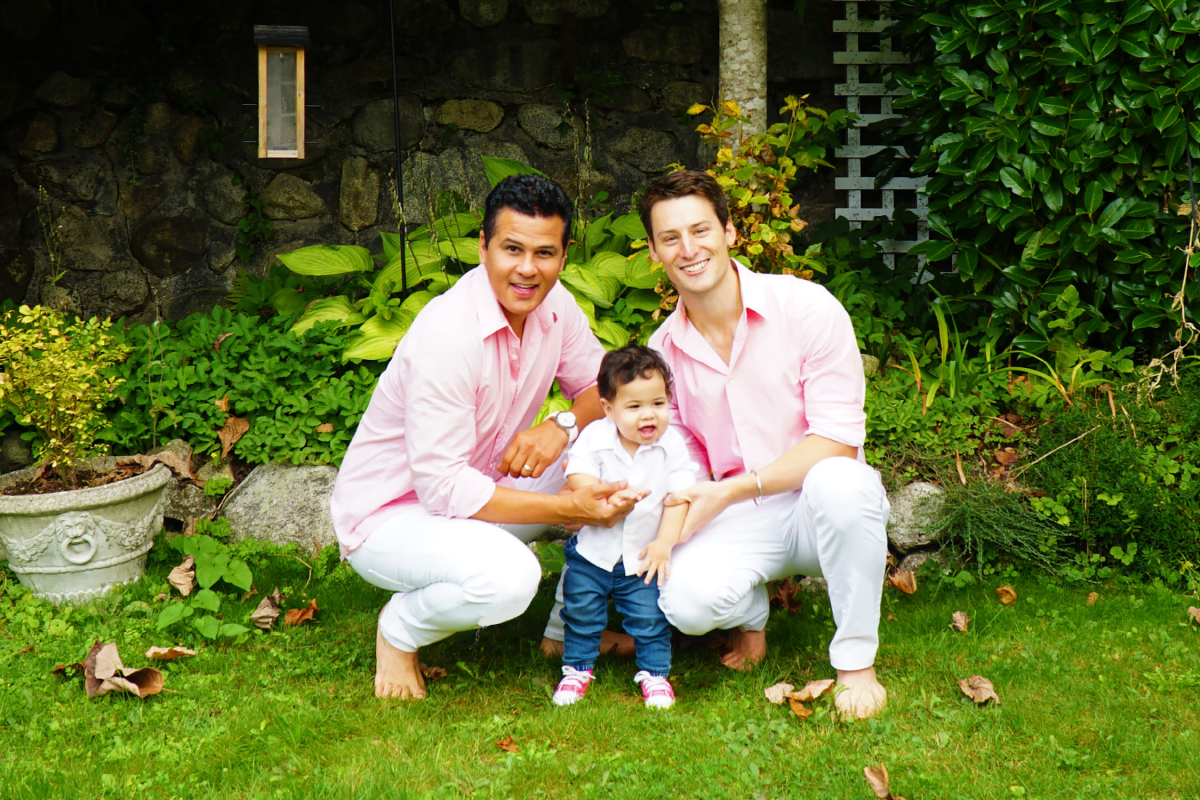It’s a monumental day for couples in Manitoba that choose to have children through assisted reproduction, as a Manitoba judge has ruled that how the province defines a legal parent in their legislation is unconstitutional.

“For these families, they won’t be in that position anymore, so it’s really a victory today for equality for Manitobans,” Taylor McCaffrey LLP family and fertility lawyer Robynne Kazina told Global News.
Under current legislation, couples who have children through assisted reproduction aren’t considered legal parents of their child if they have no biological connection, meaning couples have to go through costly court orders or adoption processes to be declared the legal parent of their own child.
In June, Kazina filed a constitutional challenge over legal parentage on behalf of seven families impacted by the legislation. On Monday, a judge ruled that certain sections of the Family Maintenance Act on the definition of a legal parent are unconstitutional, meaning Manitoba will now join British Columbia, Saskatchewan, and Ontario in updating and modernizing their legislation on legal parentage. The legislation will be updated in the next year.
Kazina says the legislation was discriminatory to many same-sex couples and couples experiencing infertility, who choose to have children through assisted reproduction.
“The amendments that will be coming will be updating a law that hasn’t been updated since 1987,” Kazina said. “(It’s important) to reflect the way that families are formed in today’s modern society.
“Families today don’t look the same as they did 20 years ago. There’s many different types of families and those families should be recognized as legal parents to their own children.”
- Posters promoting ‘Steal From Loblaws Day’ are circulating. How did we get here?
- Video shows Ontario police sharing Trudeau’s location with protester, investigation launched
- Canadian food banks are on the brink: ‘This is not a sustainable situation’
- Solar eclipse eye damage: More than 160 cases reported in Ontario, Quebec
On Monday, each of the seven families involved in the constitutional challenge had their parentage legally recognized by a judge.
“This is just such a significant victory for LGBTQ2s families,” said Allison Fenske, a staff attorney with the Public Interest Law Centre.
“The opportunity to have a recognition that the current laws in Manitoba around legal parentage are outdated, that they discriminate against families, LGBTQ2S families, and that the resulting opportunity to modernize these laws that will recognize parents is long overdue, and it just means that we now have the opportunity to remove burdens and barriers for new parents.”
Same-sex couple Jill Stockwell and Courtney Maddock are one of the couples involved in the constitutional challenge. When their daughter CJ was born, Stockwell couldn’t be considered a legal parent without a court order or adoption. That changed Monday morning.
“I automatically became a parent with that ruling today, so that’s a huge change for us,” Stockwell said.
“It was really exciting and emotional,” Maddock said. “You had all of the feelings happen at once. But honestly we’re just so excited for not only our family but all families that this is going to impact.”
Under Manitoba’s current legislation, in cases where couples have a child through surrogacy, the surrogate and sometimes their partner will be listed as the legal parents. It’s something that British Columbia couple Vincenzo Coia and Shawn Thorn experienced.
Their son, Elio, was born in Manitoba through a surrogate, who was listed on the birth certificate as the legal parent. The couple had to undergo genetic testing to gain parentage rights of their own child.
“Vincenzo being on the birth certificate and I’m not on the birth certificate, even though I know I’m the dad, all of that it just doesn’t sit well. It just feels like we’re missing out on what’s naturally supposed to be ours,” Thorn said.
“And just to know that if we decide to have another child in Manitoba, that we would be recognized immediately (as parents). When we were in the hospital, we weren’t recognized. Our names weren’t on any of the paperwork, nor on his wristband when he was born. It was just all really challenging for us.”
Both Coia and Thorn say they’re thrilled with the court ruling.
“It’s just really a sense of pride that me and Shawn were able to contribute the to LGBTQ community or just anyone who’s going through surrogacy,” Coia said.
“And (it just makes) it so much easier for them so that they don’t even have to think about being treated in this different way so they could just be treated as regular human beings and be listed as parents.”





Comments